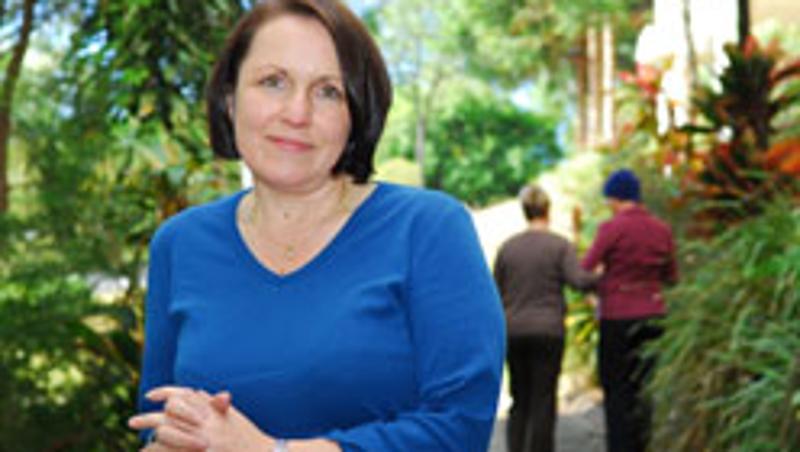
It's often far from what they feel like doing, but women who do mild aerobic exercise during chemotherapy for breast cancer report significantly less fatigue.
Queensland University of Technology nursing researcher Professor Patsy Yates, from the Institute of Health and Biomedical Innovations, said the debilitating fatigue that accompanied chemotherapy treatment could be reduced by giving patients techniques to self manage their tiredness.
"It is not just physical fatigue that women receiving chemotherapy report," Professor Yates said.
"Women also describe emotional fatigue and can feel so tired they cannot imagine getting out of bed the next day, as well as cognitive fatigue such as not being able to concentrate on usual day to day activities such as reading."
Professor Yates said it was almost counterintuitive for women undergoing chemotherapy to exercise.
"We found the two key techniques that helped women to manage fatigue were to do light exercise, such as walking, and to pace themselves so they they had energy to do the things they enjoy.
"Chemotherapy patients tend to rest because they feel unwell and tired but rest alone is not beneficial - it seems to set up a vicious cycle: the less active you are the less energy you have for daily life."
Professor Yates studied 109 Queensland and Victorian women starting chemotherapy for stages I or II breast cancer.
The women were divided into a group who received three 10 to 20-minute sessions on managing fatigue and a control group who received general education about living with cancer.
The study found that the women in the control group consistently had an increase of at least 50 percent in reported fatigue compared with those who received the self management information.
"The study shows even a small amount of discussion about what can be done to manage fatigue can be helpful," Dr Yates said.
"We are not sure why exercise works but it could be because it keeps your body conditioned so the effort to do other things is less."
Professor Yates said further research would look at how to incorporate the fatigue-fighting message into routine clinical practice.
Media contact: Niki Widdowson, QUT media officer, 07 3864 1841 or n.widdowson@qut.edu.au.
Professor Patsy Yates: 0413 262 014
** High res pic available.




